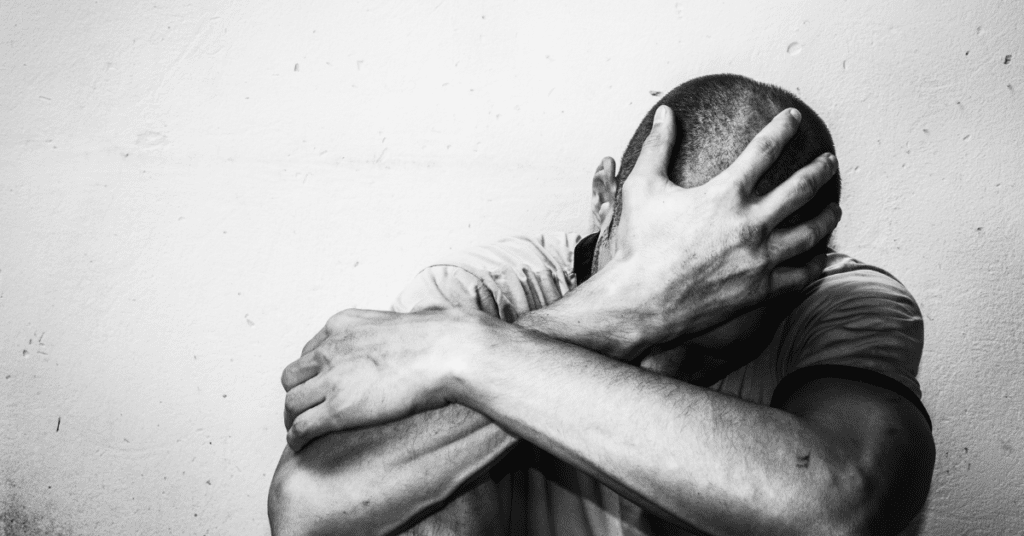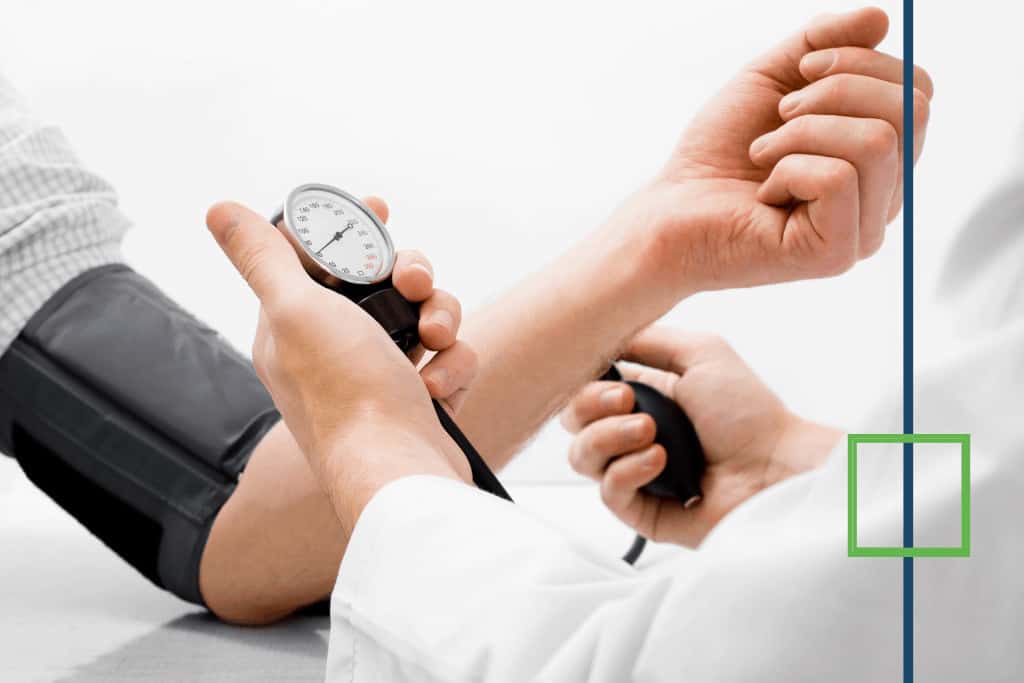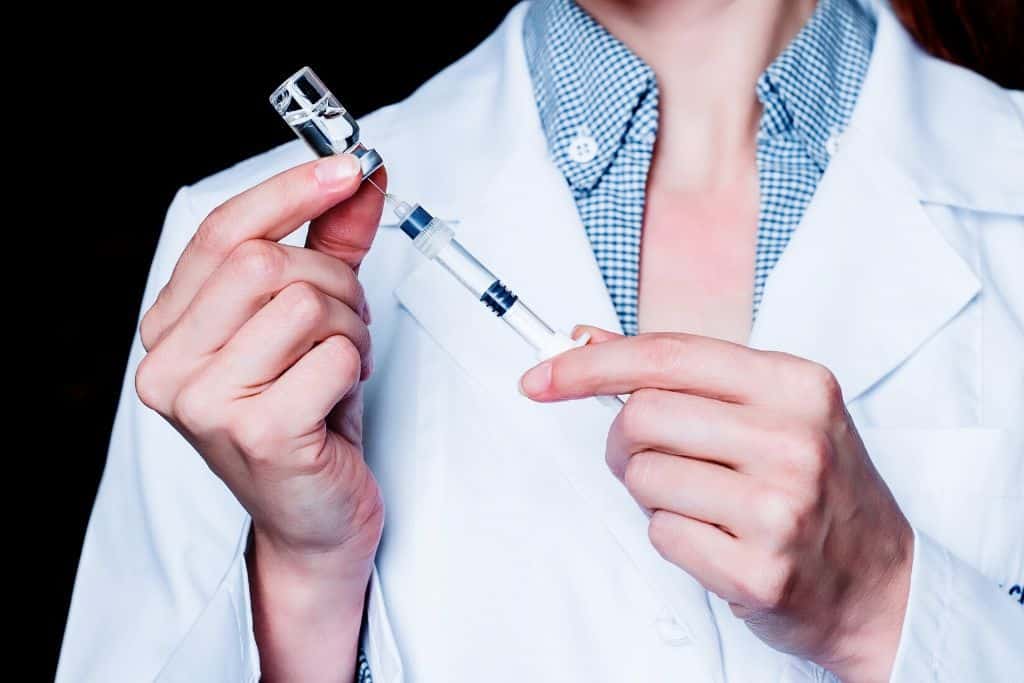Can You Overdose From Smoking Crack?
Can you overdose from smoking crack? Yes. Crack is made of cocaine hydrochloride that has been processed with baking soda or ammonia and water into a form called “freebase”. The mixture is cooled and filtered, and then the “chips, chunks, or “rocks” are smoked in a crack pipe. Is there a difference between cocaine and crack cocaine? There are no pharmacological differences between powder cocaine and crack cocaine. This means that, chemically, they are nearly identical and hence, produce similar results. When smoked, crack produces a very fast and intense feeling of euphoria. Unfortunately, this feeling is extremely harmful, not to mention it often leads to crack addiction.
Smoking crack is a dangerous route of administration by itself, simply because of the way the drug enters the system. When smoked, crack cocaine enters the bloodstream quickly and then crosses the blood-brain barrier to affect neurotransmitters of the central nervous system(CNS). Chest pain with convulsions can happen during crack inhalation. Additionally, an unintentional crack overdose can be common and is almost always caused by the urge for a stronger “high”.

Crack cocaine is highly addictive, and once an addiction is present, the problems stack up exponentially. Realizing there is a problem, and seeking help to conquer crack effects and addiction are the first strides to reclaiming a drug-free life. Crack cocaine can cause damage to mental health, which appears in the form of mood or emotional disturbances. Because the drug directly interferes with dopamine being reabsorbed by neurons, one of the symptoms of a crack cocaine comedown is serious depression. Addiction to crack is a chronic condition that will be with the user for life. Addiction recovery is possible and help is out there. If you or a loved one are suffering from crack addiction, please seek help.

Get Your Life Back
Find Hope & Recovery. Get Safe Comfortable Detox, Addiction Rehab & Dual Diagnosis High-Quality Care.
Hotline(844) 597-1011How Much Crack Does It Take To Overdose?
In general, crack overdose depends on a person’s tolerance to cocaine. Chronic use of cocaine, high levels of tolerance, or addiction, can increase your tolerance to crack. And while it takes a different dose of crack to cause a crack overdose in any individual person, anything higher than 5 grams has been proven to cause heart attacks.
There is no way to be sure that a particular dosage of crack will not be fatal. There are simply too many factors at play including your size, sex, age, and history of drug use. In addition, some people may overdose with their first use of crack — often because of dangerous crack cutting agents, such as fentanyl, while others may use crack for months or years before experiencing a crack overdose. In short, any amount of crack can lead to a non-fatal overdose.
Crack cocaine use is always potentially deadly. The effects of crack cocaine increase your heart rate, blood pressure, and body temperature. All of these changes strain your cardiovascular system. These effects can cause stroke, seizures, and cardiac arrest. It doesn’t matter if it’s your first time or if you’re young and healthy. You are at risk.
That said, crack cocaine substance abuse, by itself, is not a high risk for fatal overdose. However, most people who abuse cocaine have a substance use disorder (drug addiction) and abuse other substances alongside it. The combination of cocaine and alcohol can easily lead to life-threatening consequences such as crack overdose and alcohol poisoning.
The combination of crack cocaine and ketamine has been dubbed ‘Calvin Klein’; this is the street name you may have heard before. Crack cocaine has often been used to enhance the effects of other drugs due to its stimulating properties, which can be dangerous, especially with ketamine and that come with a high risk of crack overdose.
What Happens When You Overdose On Crack?
A person can become addicted after his or her first time trying crack cocaine. This is because the crack effects reach the brain very quickly (mostly due to the fact that it is smoked when abused) and then dissipate after five or ten minutes, causing the individual to crave more almost immediately.
Therefore, this illegal psychoactive drug has a very high chance of causing a crack overdose, especially in users who are constantly binging on the drug. If you have a loved one who abuses crack cocaine, it is important to be able to recognize the signs of a crack overdose.

Many people who use the crack believe it to be less likely to cause a crack overdose because it lasts in the body for a shorter amount of time, but that is not true. How long does crack stay in your system? Like many other illegal drugs, crack cocaine can cause a deadly overdose if an individual takes too much.
Crack cocaine deaths often occur because those who abuse the drug binge on it and continue smoking more and more until the drug causes harmful side effects to the heart, lungs, and mind. Being able to recognize a crack overdose is important, as anyone who smokes the drug has the chance of experiencing it. “Sudden death” can occur even with one use of the drug.
Symptoms of a crack overdose typically occur abruptly after use, although there are instances of delayed signs and symptoms occurring one to two hours after use. Crack overdose can result in serious and chronic damage to the body such as stroke, heart attack, and kidney failure.
Get Help. Get Better. Get Your Life Back.
Searching for Accredited Drug and Alcohol Rehab Centers Near You?
Even if you have failed previously and relapsed, or are in the middle of a difficult crisis, we stand ready to support you. Our trusted behavioral health specialists will not give up on you. When you feel ready or just want someone to speak to about therapy alternatives to change your life call us. Even if we cannot assist you, we will lead you to wherever you can get support. There is no obligation. Call our hotline today.
(844) 597-1011Signs of Crack Overdose
The signs of a crack overdose are often much like the signs of a crack high, but they are much more intensified. There are also a number of symptoms that indicate the person is in critical condition and must be treated right away. The common signs of a crack overdose include:
- Agitation: A crack user will clearly begin to act upset and uncomfortable, often unable to sit still or speak rationally. It can be very hard to talk to someone in this state, and you should not reason with the person if they are not able to think logically. While this does often happen when a person is experiencing a crack high, it will become much more exaggerated if the individual has crack overdosed.
- Itchiness: This is another symptom that people who are high on crack will commonly exhibit, but the individual may possibly complain of it being worse or be unable to stop scratching if they have overdosed. Any time you see a symptom like this that has become worse than you’ve ever seen it, there is a strong likelihood that a crack overdose has occurred.
- Fever and Sweating: A crack user may begin to run a fever if they are experiencing a crack overdose. Even if they are not feverish, they will complain of being very hot and likely sweat profusely. This is because crack cocaine speeds up and increases many of the body’s functions, including its base temperature.
- Cold Sweat: When a crack user begins to exhibit cold sweat, this is a strong sign they are not just high on the drug but going through a crack overdose. Their skin will be clammy and cold to the touch as well.
- Black mucous: Because crack is smoked, the drug can affect a person’s respiration. Smokers may suffer from acute respiratory problems including cough, shortness of breath, and severe chest pains with lung trauma and bleeding. However, if the person has truly overdosed on crack, they will cough up mucous that will be black in color. This is an important sign that the individual needs medical help right away.
- Shakiness: The crack user may begin to shake or exhibit tremors because the amount they have smoked is too much for their system to handle. The person may even experience a seizure, which is a sign that they need immediate help.
- Irregular Heartbeat: A person’s heart will likely beat very fast if they begin to overdose on the drug. It could also lead to the feeling that the heart is beating out of their chest or that they can hear it pounding in their head. Often, crack users will complain about these issues, but it is important to ask what it feels like to them. Crack is always going to speed up a person’s heartbeat, but when it becomes extremely fast or irregular, this is a strong sign of a crack overdose.
- Dilated pupils: Because crack is a stimulant, it causes the pupils to become very large. When a person has overdosed on the drug, the pupils will grow, even more, giving friends and family members a clear sign that this is not a typical high.
- Substance-Induced Psychosis: Often, crack users who are undergoing a crack overdose will begin to act irrationally and even psychotically. Hallucinations, hostile or violent behavior, and delusions are all signs of an overdose, and these side effects can be deadly on their own. It is important to get the individual help as soon as possible and to avoid trying to reason with them or doing anything else that may put you in danger.
- Unconsciousness: When a person suddenly falls unconscious after smoking too much crack, it is a strong sign that they have overdosed. Get them medical treatment immediately, as they could have slipped into a coma.
- Cardiac arrest: In many instances, the heart can stop and an individual can die from a crack cocaine overdose. The person will likely stop breathing and fall unconscious as well.
- Stroke: A stroke can also be deadly, and its symptoms include weakness on one side of the body, a drooping face, and sudden problems speaking.
Crack Overdose Symptoms
If you or a loved one think you may be experiencing an overdose, call 911 immediately. The symptoms of a crack overdose may include:
Physical Symptoms
Physical symptoms of overdose include:
- Tremors
- Agitation
- Nausea
- Vomiting
- Collapse
- Slowed or arrested breathing
- Faint or excessive pulse rate
- Chest pains
- Seizures
- High body temperature
- Profuse sweating
- Unconsciousness
Psychological Symptoms
Psychological symptoms can result in danger to self or others caused by:
- Hallucinations
- Delirium
- Delusions
- Agitation
- Paranoia
- Violence
First-class Facilities & Amenities
World-class High-Quality Addiction & Mental Health Rehabilitation Treatment
Rehab Centers TourRenowned Addiction Centers. Serene Private Facilities. Inpatient rehab programs vary.
Addiction Helpline(844) 597-1011Proven recovery success experience, backed by a Team w/ History of:
15+
Years of Unified Experience
100s
5-Star Reviews Across Our Centers
10K
Recovery Success Stories Across Our Network
- Low Patient to Therapist Ratio
- Onsite Medical Detox Center
- Comprehensive Dual-Diagnosis Treatment
- Complimentary Family & Alumni Programs
- Coaching, Recovery & Personal Development Events
Risk Factors for a Crack Overdose
There are several possible risk factors for a crack overdose, starting with a person simply smoking an excessive amount of the crack. Crack cocaine and powdered cocaine use can lead to changes in a person’s brain, which causes an increase in dopamine. As the brain gets used to the presence of the drug, a person often wants or craves more crack cocaine to achieve a certain feeling or “high.”This can lead to a cycle of binging, which could play a role in a person overdosing on crack.
Other risk factors for a crack cocaine overdose may include:
- Mixing crack with other drugs. Many crack users drink alcohol or use it with opioids, which increases the risk of overdose.
- Change in a person’s tolerance. If a person stops using crack, then starts again, their body may react differently, which can lead to an overdose.
- Co-occurring physical health conditions. A person with other physical health conditions like heart problems, breathing issues, HIV, or a weakened immune system may be at a higher risk for an overdose.
- Co-occurring mental health conditions. Many people with a stimulant use disorder have a co-occurring mental health disorder. This can make treatment difficult and may lead them to use crack cocaine or other drugs to ease symptoms related to mental health challenges.

What to do in Case of Crack Overdose?
A crack overdose is a medical emergency. Seek medical attention immediately if a crack cocaine overdose is suspected.
- Call 911 immediately.
- Gather information to provide to emergency responders, including age, pre-existing conditions, drug allergies, drug/alcohol use, and the amount of cocaine taken.
- Lay the person on their side. This helps with breathing and helps prevent them from choking on their own vomit.
- If the person feels overheated, try to keep their body temperature down with cold compresses.
- Keep the individual in a safe environment, away from anything that can potentially injure them in the event of a seizure, such as objects with sharp edges.
- Stay with the person until emergency workers arrive.
Crack Overdose Death
Substance misuse has always been associated with the risk of mortality among its users. As a member of this “new generation” of psychoactive substances, crack cocaine has caught the attention of health authorities, especially in the Americas and in Europe. The profile of young crack users, the acute effects of the drug, and the violence of the illegal market have transformed crack into an extremely important public health issue.
Crack first appeared in Brazil in the late 1980s, and crack use began to increase rapidly in the following years due to the lower price and more intense effects of the drug. Injection drug users (IDUs), motivated by the fear of AIDS, also altered the route of administration from injection to crack smoking.
It comes as no surprise that death is a possible result of a crack cocaine overdose. Like the rapidity of the drug itself, these deaths can occur quickly. In fact, some 75 percent of all crack overdose deaths happen within just five hours of smoking the drug. Just how much crack it takes to overdose depends on myriad factors — tolerance being chief among them. Chronic usage, especially due to bingeing, both increases the risk of addiction and tolerance alike. While a first-time user could die from one use, an experienced user could potentially use as much as 5 grams in a day before succumbing to the effects.
Crack Cocaine Overdose Treatment
Crack cocaine overdoses can be dangerous in both the short and long term. Crack cocaine overdose symptoms need to be treated immediately, but a crack overdose can also signify a bigger problem, including substance use disorder or addiction.
Immediate Treatment Options
Unlike other drugs which have approved medications to reverse an overdose (such as many prescription opioids), crack overdose cannot be treated this way. Instead, first responders try to treat the severe symptoms of a crack overdose.
A crack user overdosing on this drug may have suffered a stroke or a heart attack. Once taken to the emergency department, doctors will likely try and restore blood or airflow to the heart or brain. Defibrillators, CPR, and resuscitation can help a patient recover.
Long-Term Treatment Options
Heart attacks, strokes, and seizures can have long-lasting effects on your physical and mental health. Individuals with these conditions may need intensive speech therapy, physical therapy, or other rehabilitation programs to recover fully.
World-class, Accredited, 5-Star Reviewed, Effective Addiction & Mental Health Programs. Complete Behavioral Health Inpatient Rehab, Detox plus Co-occuring Disorders Therapy.
CALL(844) 597-1011End the Addiction Pain. End the Emotional Rollercoaster. Get Your Life Back. Start Drug, Alcohol & Dual Diagnosis Mental Health Treatment Now. Get Free No-obligation Guidance by Substance Abuse Specialists Who Understand Addiction & Mental Health Recovery & Know How to Help.
Crack Cocaine Addiction Treatment Near Me
First and foremost, if you think that a loved one is abusing cocaine, you should first research the drug and addiction associated with it so that you can better understand what your loved one needs. Next, you must plan an intervention to provide your loved ones with options to battle their addiction in a safe and supportive environment. During this intervention, make sure that you offer compassion and support instead of judgment.
Lastly, offer your support throughout the entire treatment process. In addition, crack overdose can have severe physical and psychological effects, so it is essential to seek treatment as soon as possible. Inpatient drug rehab offers intensive care that can help you get through the early stages of withdrawal promptly. Since crack is usually smoked, you might want to know “what does cocaine smell like? We’ve learned how it can be cut with fentanyl and rat poison which can lead to overdose and death, so it is important not to smell or taste it just to test its purity.

Learning how to leave a crack addict is not an easy decision but you must face it once it’s there. Crack effects are devastating not only to the person but also to the whole family. Addiction is a family disease.
Medically-Assisted Detox
Detox is often considered the first stage of treatment. It will help you navigate the complicated process of withdrawal, but it doesn’t address patterns of thought and behavior that contribute to drug use. Various treatment approaches and settings can help provide the ongoing support necessary to maintain long-term sobriety after you complete detox.
Cravings are very common during detox and can be challenging to overcome. This often leads to relapse. Constant medical care provided during inpatient treatment helps prevent relapse. Clinicians can provide necessary medication and medical expertise to lessen cravings and the effects of withdrawals.
Psychotherapy
Several different modalities of psychotherapy have been used in the treatment of mental health disorders along with addiction, including:
- Cognitive Behavioral Therapy (CBT) – is an effective treatment that involves making changes in both the patterns of negative thoughts and the behavioral routines which are affecting the daily life of the depressed person for various forms of depression.
- Dialectical Behavior Therapy – is a comprehensive mental health and substance abuse treatment program whose ultimate goal is to aid patients in their efforts to build a life worth living. The main goal of DBT is to help a person develop what is referred to as a “clear mind.”
- Person-Centered Therapy – is a strategy that allows and encourages clients to understand and resolve their concerns in a safe, supportive environment.
- Solution Focused Therapy – is an approach interested in solutions that can be quickly implemented with a simple first step leading to further positive consequences.
Dual Diagnosis Treatment
Drug abuse and mental health disorders often co-occur. In many cases, traumatic experiences can result in a mental health disorder and substance abuse. Dual diagnosis rehabilitation treats both of these issues together. The best approach for the treatment of dual diagnosis is an integrated system. In this strategy, both the substance abuse problem and the mental disorder are treated simultaneously. Regardless of which diagnosis (mental health or substance abuse problem) came first, long-term recovery will depend largely on the treatment for both disorders done by the same team or provider.
Medication-Assisted Treatments
Medication-Assisted Treatments (MAT) for substance use disorders and mental health disorders are commonly used in conjunction with one another. This includes the use of medications and other medical procedures. During your rehab, the staff from your treatment facility will help you identify what caused your addiction and teach you skills that will help you change your behavior patterns and challenge the negative thoughts that led to your addiction. Sometimes, the pressures and problems in your life lead you to rely on substances to help you forget about them momentarily.
Please, do not try to detox on your own. The detox process can be painful and difficult without medical assistance. However, getting through the detox process is crucial for continued treatment. We Level Up provide proper care with round-the-clock medical staff to medically assist your recovery. So, reclaim your life, and call us to speak with one of our treatment specialists. Our counselors know what you are going through and will answer any of your questions.

Experience Transformative Recovery at We Level Up Treatment Centers.
See our authentic success stories. Get inspired. Get the help you deserve.
Start a New Life
Begin with a free call to an addiction & behavioral health treatment advisor. Learn more about our dual-diagnosis programs. The We Level Up Treatment Center Network delivers recovery programs that vary by each treatment facility. Call to learn more.
- Personalized Care
- Caring Accountable Staff
- World-class Amenities
- Licensed & Accredited
- Renowned w/ 100s 5-Star Reviews
We’ll Call You
Sources:
[1] NIDA – https://nida.nih.gov/publications/drugfacts/cocaine
[2] NIDA – https://nida.nih.gov/drug-topics/trends-statistics/overdose-death-rates
[3] What Is Cocaine Made Of? – We Level Up NJ


